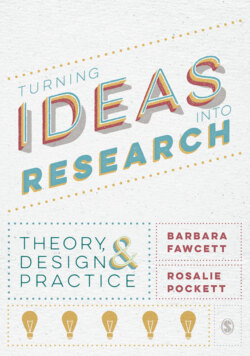Читать книгу Turning Ideas into Research - Barbara Fawcett - Страница 30
На сайте Литреса книга снята с продажи.
Ethics, research and trustworthiness
ОглавлениеIn considering trustworthiness, the nature of trust itself requires examination. Beauchamp and Childress (2001: 34) define trust as ‘the confident belief in and reliance upon the moral character and competence of another person. Trust entails a confidence that another will act with the right motives and in accordance with appropriate moral norms.’ Once again we can see the interplay of morality and ethical positioning in debates regarding the trustworthiness of research studies and their outcomes. We will discuss this in more detail in Chapter 8 when we look at the constructive appraisal of research and consider wider understandings of trustworthiness that include technical aspects that demonstrate trustworthiness in research orientations. Foreshadowing this, we can see that the nature of reality itself becomes the contextual arena within which research orientations are located. In scientifically orientated positivist orientations Lincoln and Guba (1985) suggested that the nature of reality is understood either as a single entity made up of observable parts and understood as one truth, or with naturalistic orientations where reality is multiple, constructed by context and meaning, and understood as an individual interpretation of experience. When these differences were being teased out, the place of values was also differentiated; however, some thirty years later, post-positivist research also needs to consider the value stance of research inquiry. Thus trustworthiness consists of more than a list of measurable criteria for methodology and research design.
